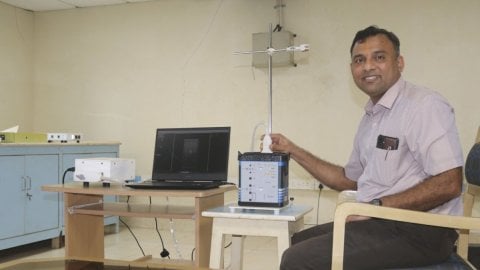
IIT Madras’ new AI-based ultrasound scanner to detect sports injury on-field (Image Source: IANS)
IIT Madras: Researchers at the Indian Institute of Technology (IIT) Madras have developed an indigenous, portable, and Point-of-Care-Ultrasound (POCUS) scanner that can diagnose sports injuries on-field.
The POCUS, powered by Artificial Intelligence (AI) can potentially allow for on-field diagnosis of injuries, with immediate assessment of the extent of injury that will allow for medical professionals to take a call on whether to permit the sportsperson to continue playing.
The novel scanner has a wide range of applications in sports medicine, and it has the benefits of safety (no radiation) and sufficient resolution compared to other modalities, said the team.

